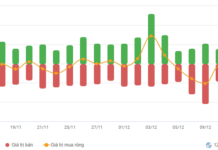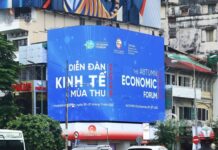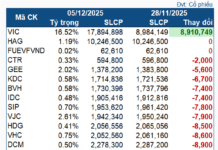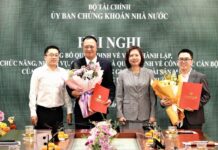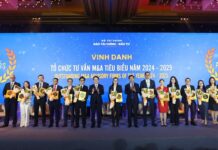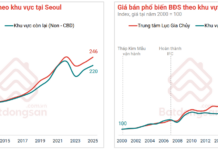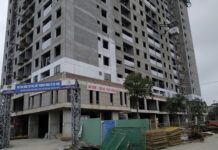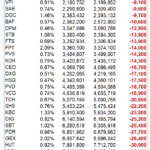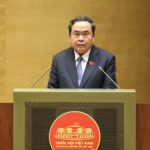Converting Golf Course Land into Urban Residential Land
After nearly a month of investigation, the Supreme People’s Procuracy of Vietnam has issued an indictment to prosecute Le Tien Phuong, former Chairman of the People’s Committee of Binh Thuan province, for “Violation of regulations on the management and use of state assets, causing loss and waste.”
Along with Le Tien Phuong, the prosecution also indicted Nguyen Ngoc and Nguyen Van Phong, former Vice-Chairmen of the People’s Committee of Binh Thuan province, Xa Duong Thang, former Director of the Department of Construction and former Secretary of Bac Binh District’s Party Committee, Ho Lam, former Director of the Department of Natural Resources and Environment, Do Ngoc Diep, former Chairman of Phan Thiet City’s People’s Committee, Le Quang Vinh, former Secretary of Phu Quy District’s Party Committee and Chairman of the People’s Committee, and Nguyen Van Phong, former Deputy Director of the Department of Finance and former member of the provincial land price appraisal council.
In the indictment, the Supreme People’s Procuracy assessed that this is an extremely serious case that occurred in the field of state management of land in the locality.
According to the indictment, Regent International OverSeas Corp (Hong Kong) was approved by the government to invest in the Ocean Dunes Golf Club project, covering an area of 62 hectares. In 2013, Rang Dong Company purchased all the shares of Regent International OverSeas Corp in Phan Thiet Golf and Golf Club Limited Company for 2.5 million USD.
After acquiring the project, Rang Dong Company continued to implement it and submitted a dossier requesting an adjustment to the investment certificate.
In November 2013, as the Chairman of Binh Thuan Provincial People’s Committee, Le Tien Phuong issued a certificate recognizing Rang Dong Company as the successor to all obligations, rights, and interests of the previous investor. The company requested the province to convert the golf course land into urban residential land in the Ocean Dunes Golf Club project.
Based on the proposal of Rang Dong Company and the advice of the departments, on March 13, 2014, Le Tien Phuong signed a report to the Provincial Party Committee’s Standing Board, proposing a plan to convert the purpose of the golf course land in Phan Thiet into urban residential land. Just two months later, the Provincial Party Committee’s Standing Board held a meeting and agreed to allow the People’s Committee of Binh Thuan province to report and request the Prime Minister to permit the conversion of the entire 62-hectare golf course land into a urban area as part of the Ocean Dunes Golf Club project by Rang Dong Company.
In October 2014, the Prime Minister sent a dispatch to the Ministry of Planning and Investment and the People’s Committee of Binh Thuan province regarding the adjustment of the Phan Thiet golf course project. The dispatch agreed to remove the Phan Thiet golf course from the master plan for golf courses in Vietnam up to 2020. The People’s Committee of Binh Thuan province was instructed to handle related issues in accordance with legal regulations, ensuring efficient land use and environmental protection for sustainable development.
With the approval of the Prime Minister, the People’s Committee of Binh Thuan province reported and received the consent of the Provincial Party Committee’s Standing Board. Subsequently, the People’s Committee of Binh Thuan province directed the departments to provide consultations, procedures for adjusting the investment certificate, adjusting the master plan for construction of Phan Thiet city, granting planning permission for the urban area in the golf course project, guiding Rang Dong Company in establishing a detailed plan, adjusting land use planning, etc.
In March 2015, at the request of the Department of Planning and Investment of Binh Thuan province, Le Tien Phuong signed the investment certificate (sixth amendment) to adjust the investment content from the Ocean Dunes Golf Club project to the Phan Thiet Beach Tourism Urban Area project.
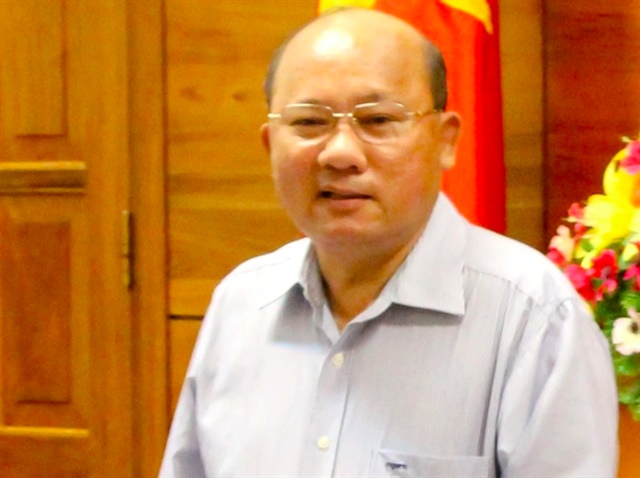 Le Tien Phuong |
In addition, Le Tien Phuong signed a decision approving the detailed construction planning of the Phan Thiet Beach Tourism Urban Area at a scale of 1/500 for the golf course land. The land structure included 363,534 square meters of residential land combined with commercial services, with the remaining area allocated for public land, transport infrastructure, parks, and green spaces. Notably, the plan did not allocate 20% of the residential land for social housing construction.
Subsequently, the former Chairman of Binh Thuan province and the accused individuals at the provincial departments committed violations in the formulation, appraisal, and approval of the land price scheme for the Phan Thiet Beach Tourism Urban Area project, causing severe losses to state assets.
Rang Dong Company Benefits from the Violations
According to the assessment, the act of approving the land price for over 10 hectares of high-rise residential land in the project caused a loss of more than 154 billion VND, while the appraisal of the land price for over 25 hectares of low-rise residential land resulted in a loss of 154 billion VND.
The prosecution concluded that the violations committed by Le Tien Phuong and his accomplices caused a total loss of 308 billion VND, and Rang Dong Company benefited from this amount.
According to the testimony of the former Chairman of the Binh Thuan Provincial People’s Committee, the motivation for the crime was the desire to expedite the approval of land prices, collect land use fees for the state budget, accelerate project implementation, create a highlight for the city’s tourism industry, and contribute to local socio-economic development. Additionally, as the land price scheme for the project had been revised multiple times, the accused did not want to pass on the responsibility for approving land prices to his successor.
Nguyen Ngoc, former Vice Chairman of the Binh Thuan Provincial People’s Committee, stated that the reason for the crime was the pressure from the Chairman of the Provincial People’s Committee, who frequently directed them to expedite the approval of land prices and collect land use fees for the state budget to facilitate the project’s implementation and enhance the city’s tourism appeal.
Hoang An




